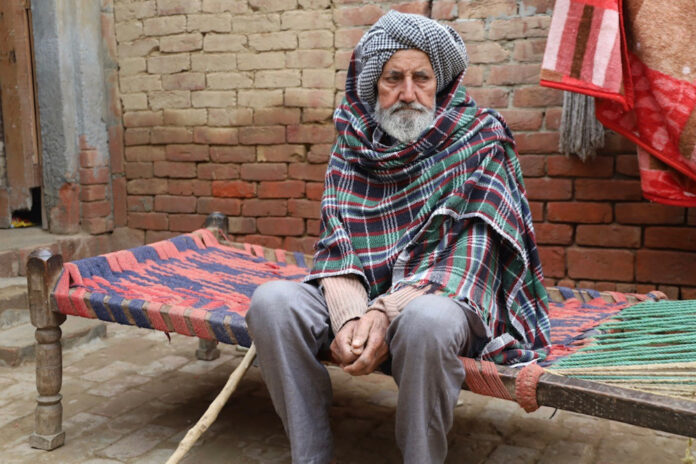PHULEWALA: In August 1947, as British India was being partitioned into two independent states, Sikka Khan’s father and elder brother, Sadiq, left Phulewala village — which became the Indian part of Punjab — and returned to their paternal village of Bogran, which became part of Pakistan.
Just two-years-old at the time, Sikka was too young to go and stayed behind in India with his mother. The family was to be reunited soon. The parents only wanted to wait until it was safe for the toddler to travel.
But the promise of being together again was cut short by a bloody orgy of violence and communal rioting that marred one of the biggest forced migrations in history. Following the partition in 1947, about 15 million Muslims, Hindus and Sikhs, fearing discrimination and violence, swapped countries in a political upheaval that cost more than a million lives.
It was in these circumstances that Sikka and Sadiq lost their father, mother — who committed suicide when she found out about her husband’s death — and the bond that was only restored last week.
“I told you we would meet again,” Sikka, 76, said through tears, as he embraced his 84-year-old brother when they met in Kartarpur, Pakistan on Jan. 10.
Kartarpur is a border city where Pakistan, in late 2019, opened a visa-free crossing to allow Indian Sikh pilgrims access to one of the holiest sites of their religion, Gurdwara Darbar Sahib. After the partition, the site found itself on the Pakistani side of the hastily drawn-up border.
The brothers’ reunion did not last long, as each of them had to return to their countries. For the past seven decades, cross-border visits have been limited by tensions and conflict.
“It was an emotional moment for us, and I could not believe that I was meeting my brother and his family,” Sikka told Arab News in Phulewala village, where he has remained since 1947.
“Life has given me the opportunity to reunite with my brother and I don’t want to live without him,” he said. “I need the company of my brother more than ever before. I want to live the rest of my life with my elder brother.”
They got in touch in 2019, when Pakistani YouTuber Nasir Dhillon visited Bogran village, where Sadiq still lives, and heard his story. He shared the footage on social media and soon received a message from Jagsir Singh, a doctor in Phulewala, who connected him to Sikka.
The YouTuber and the doctor helped the brothers meet virtually.
“The brothers for the first time saw each other over a video call two years ago,” Singh told Arab News. “Since then, they have remained in touch with each other through WhatsApp.”
They have been talking to each other at least 15 minutes every day, but it took them two years to meet in person as even the visa-free Kartarpur corridor was affected by the COVID-19 pandemic until late last year.
“The opening of the Kartarpur corridor in November last year allowed us the opportunity to organize the meeting between the brothers,” Singh said.
When he arrived in Kartarpur on Jan. 10, Sikka, who does not have his own family, was accompanied by a dozen villagers from Phulewala.
“For me, my village has been family,” he said, as he chatted to Sadiq through a video call. “Now I want to go to Pakistan and live with my elder brother for some time. I hope the Pakistani government gives me a visa.”
Sadiq, too, wants to go to his birthplace.
“I want to meet Sikka in his village,” he said during the video call with his brother. “We want to live together and make up for the time we have lost.”

